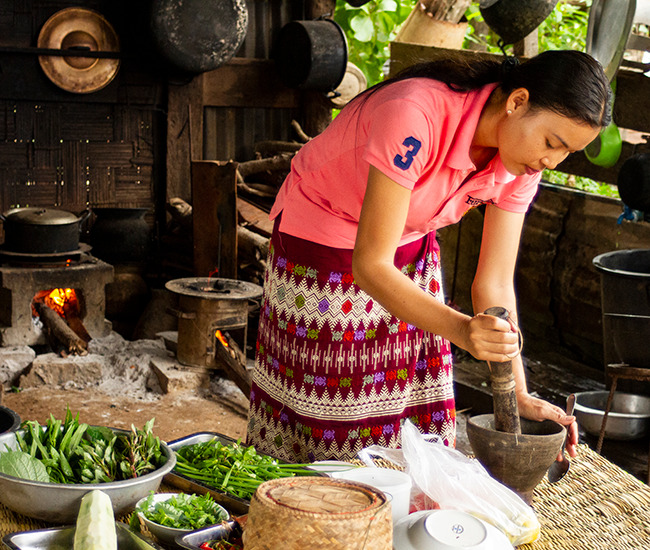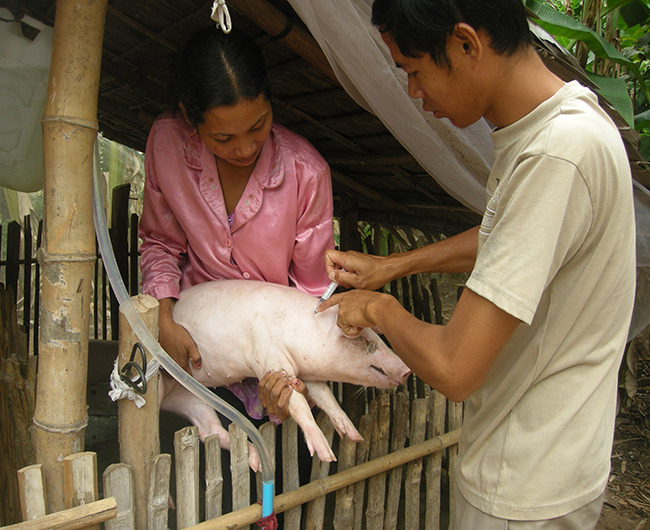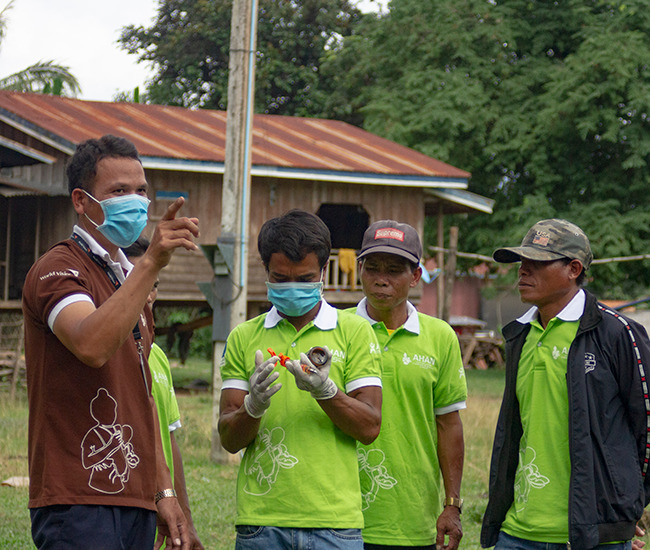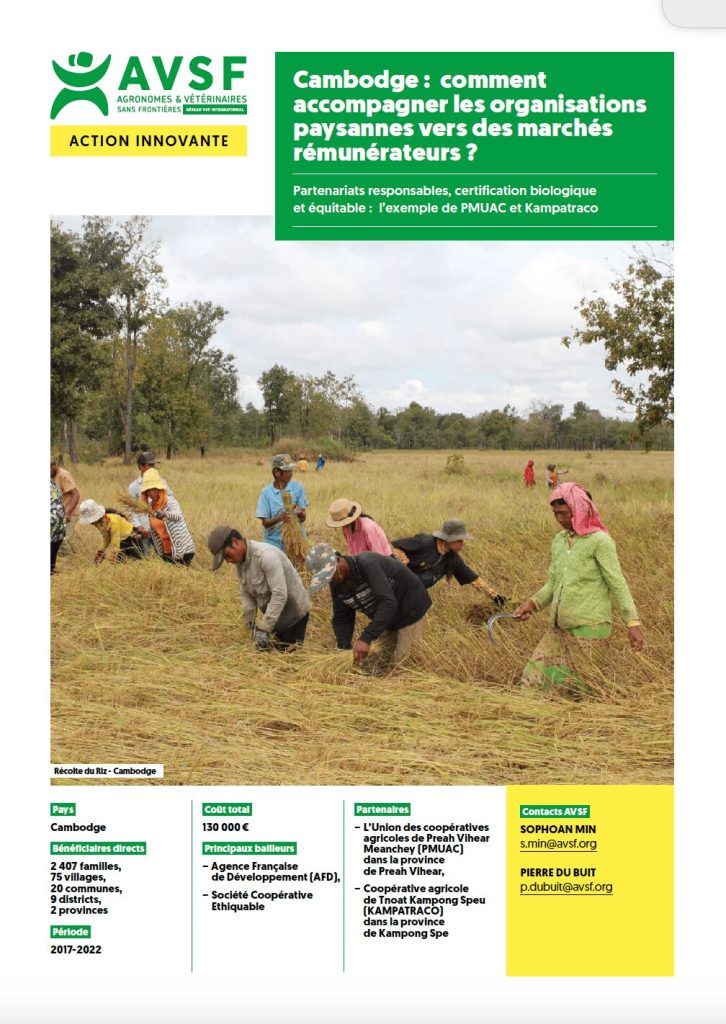Tea plants (camelia sinensis) are endemic to the forests in the mountains of northern Laos, remote areas where many ethnic minorities live: thousand-year-old wild tea plants, wild tea plants on slash-and-burn plots and plantations. The region accounts for roughly 95% of tea production in Laos. Tea has big potential for local economic growth, as Lao tea is unique in that it is cultivated mainly by small producers. But it is largely underexploited, as 85% of production is exported illegally to the Chinese province of Yunnan, where it is processed and sold as Pu’er. That short-term opportunity—a lucrative outlet thanks to Pu’er’s reputation—is not sustainable because it is illegal and uncontrolled (as it is in the hands of Chinese buyers), and it reduces the added value for Laos and small producers.
Tea from northern Laos is recognized for its quality and unique varieties, and has therefore been identified by the Lao government as a niche crop with high potential to promote local and inclusive economic growth in the country. To remedy the disorganization in the sector and the still very limited promotion of tea production (particularly for export), the French Development Agency is supporting a project to structure the sector. The project was implemented by the Lao Ministry of Agriculture and Forestry, with support from AVSF, GRET and the Lao consulting group LCG.
Launched in March 2019, this three-year project aims to improve governance of the sector by developing an alliance between actors at national level. Emphasis will be placed on inclusive governance of the sector through better management of knowledge and sharing of information and through communication and marketing initiatives for the development of a national strategic plan. The project will also support two pilot initiatives for sustainable, high-quality tea in two districts in northern Laos: the Meung district in the province of Bokeo, and the Saysathan district in the province of Xayabouri. Since those two areas are at different stages of development in terms of tea production, the initiatives will differ slightly but will focus on production and the organization of producers, processing, certification and marketing.
The project also aims to combat poverty and improve the standard of living for ethnic minorities in northern Laos: more than 630 families (roughly 4,000 people) should see improvement in their standard of living. The project should encourage greater inclusion of small producers, particularly women, in decision-making within producer groups and cooperatives, and in their participation in training. Lastly, it should help improve the sustainable management of tea plantations, particularly tea forests, through concerted-management plans and the securing of land.









